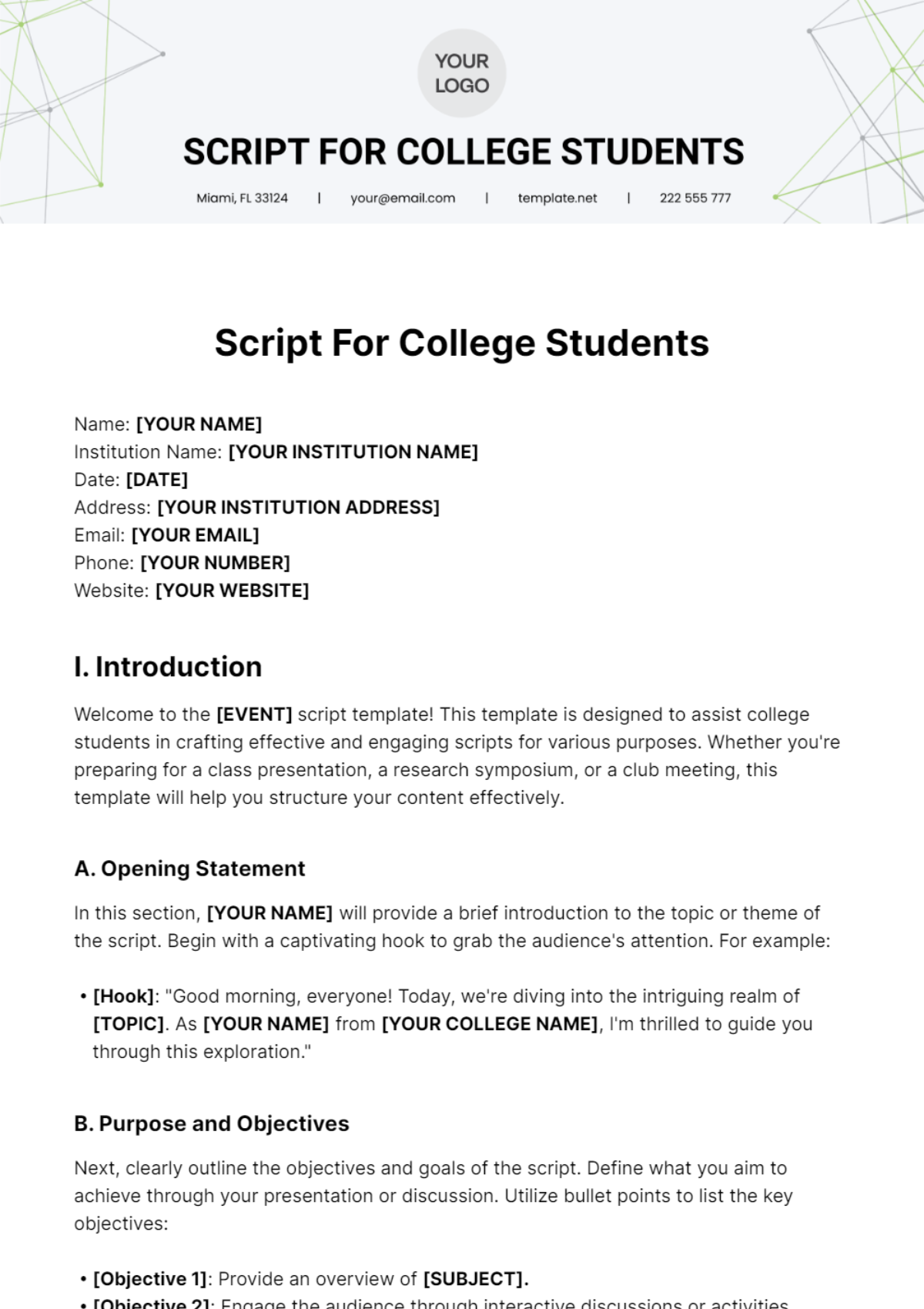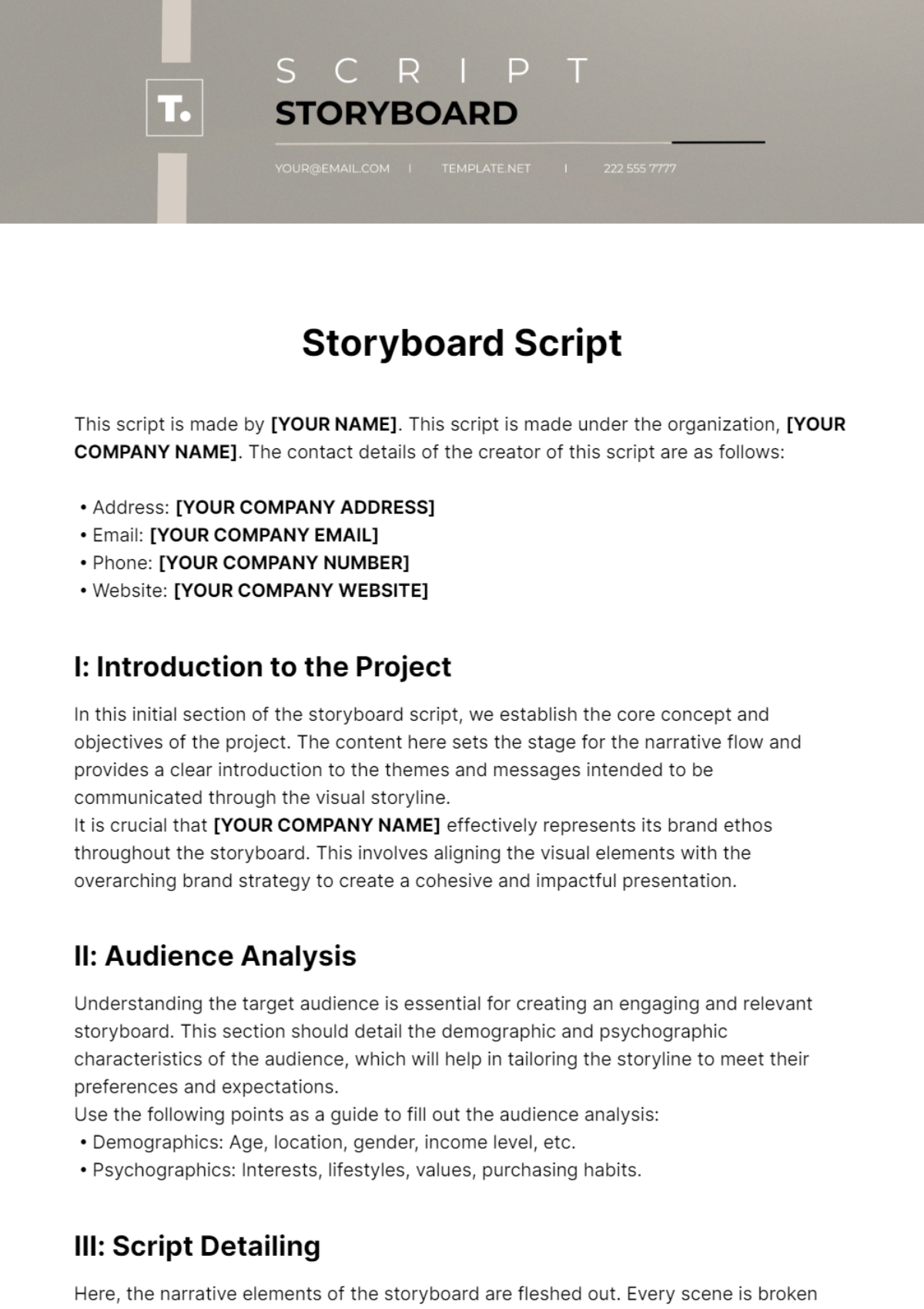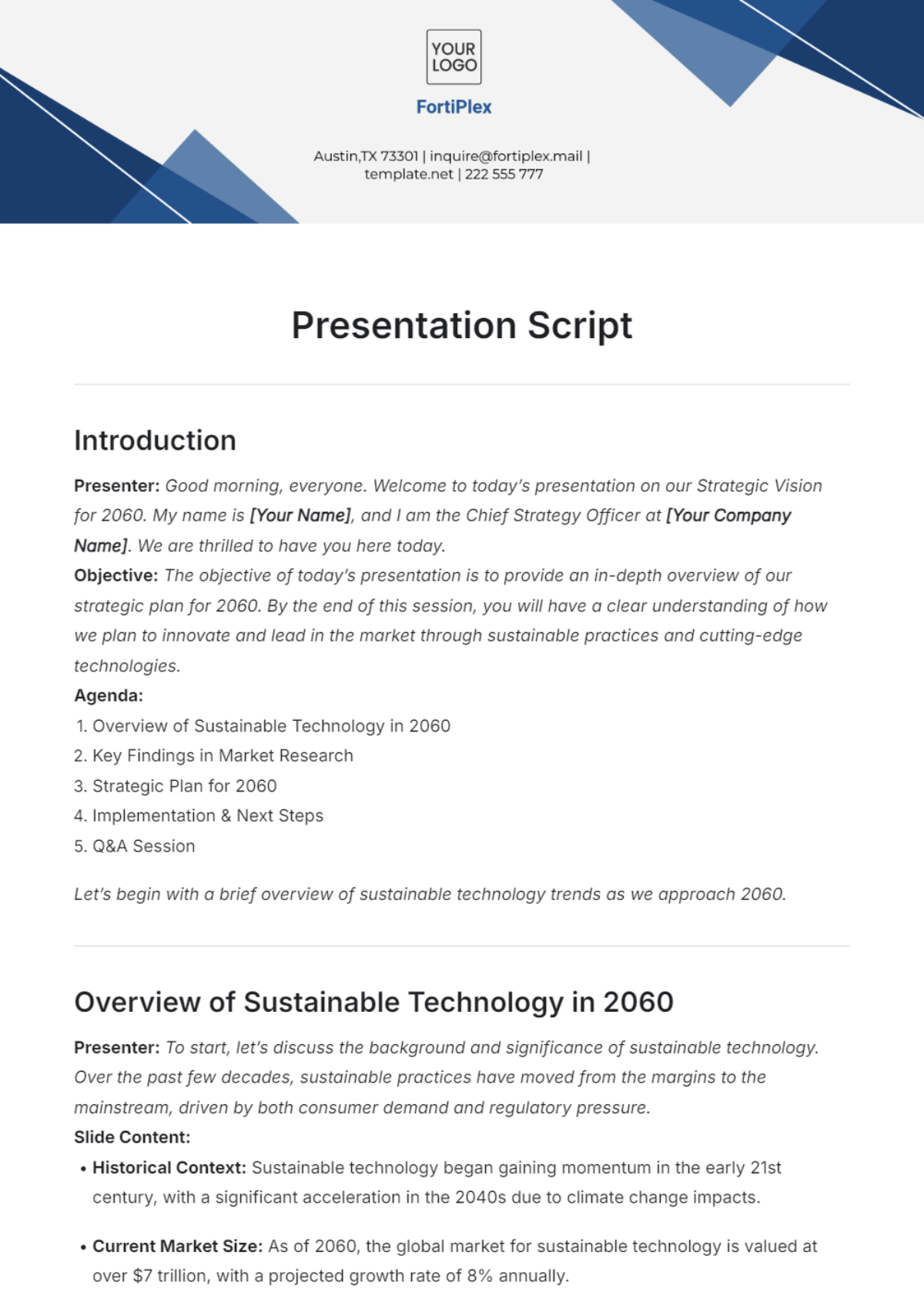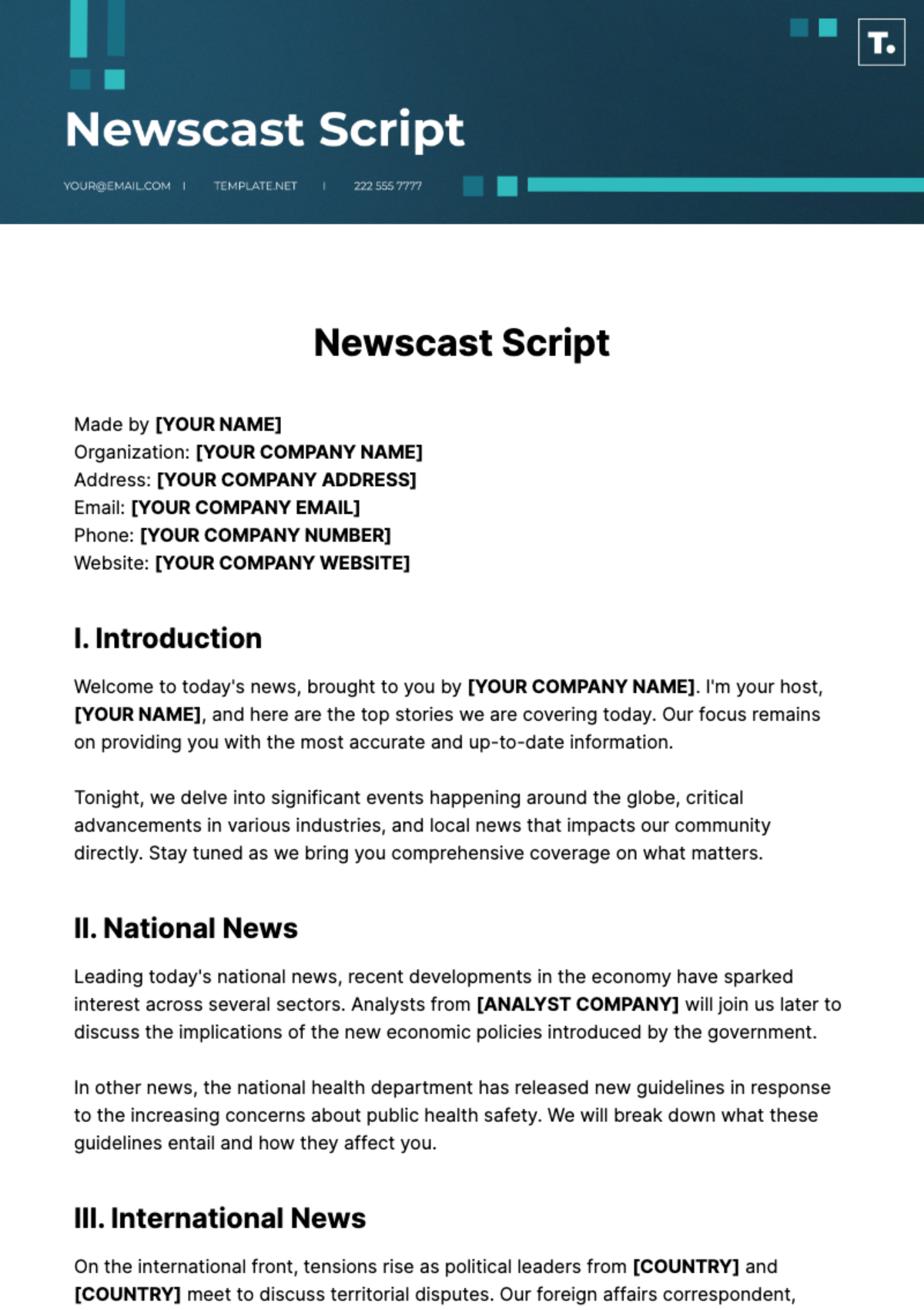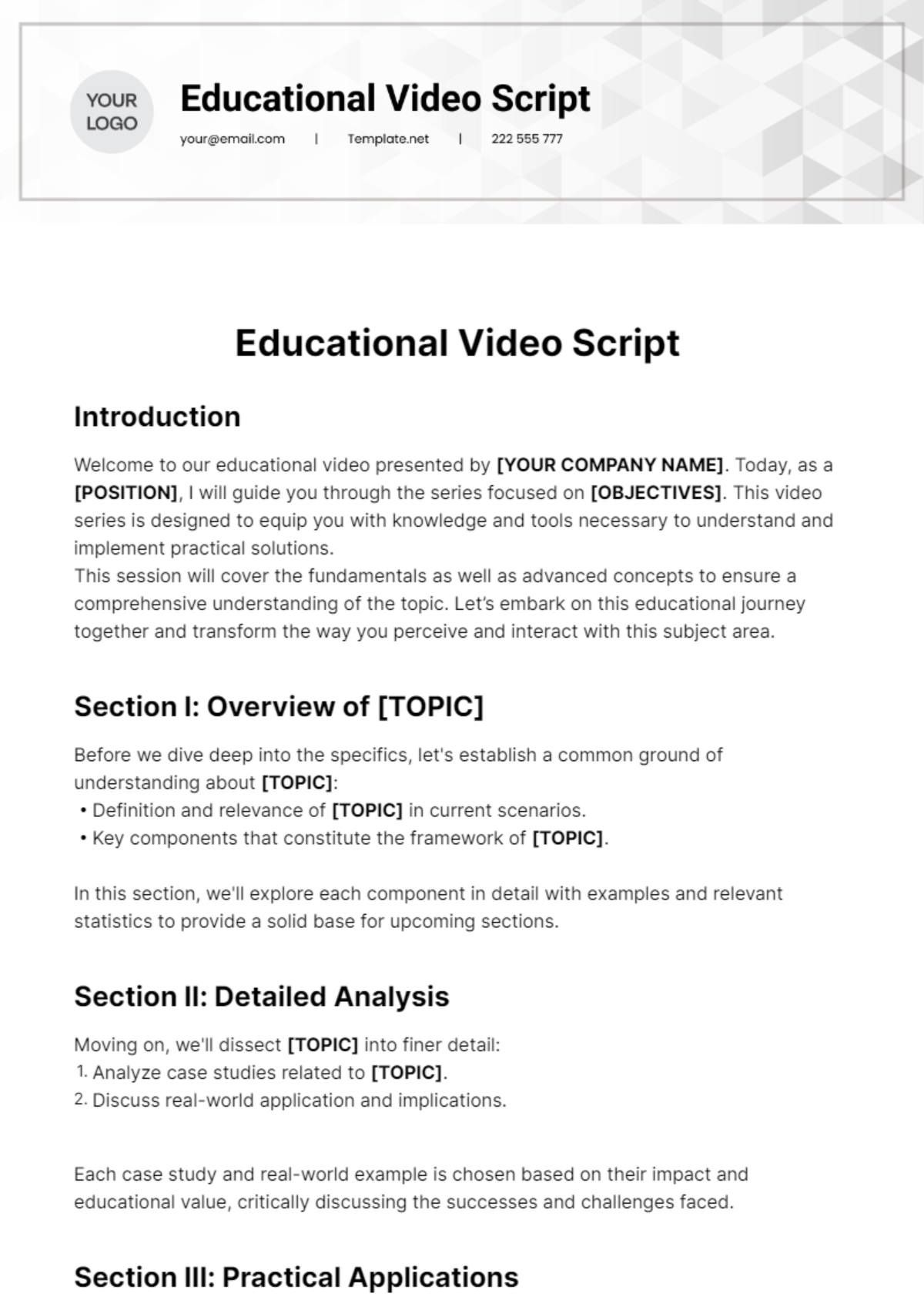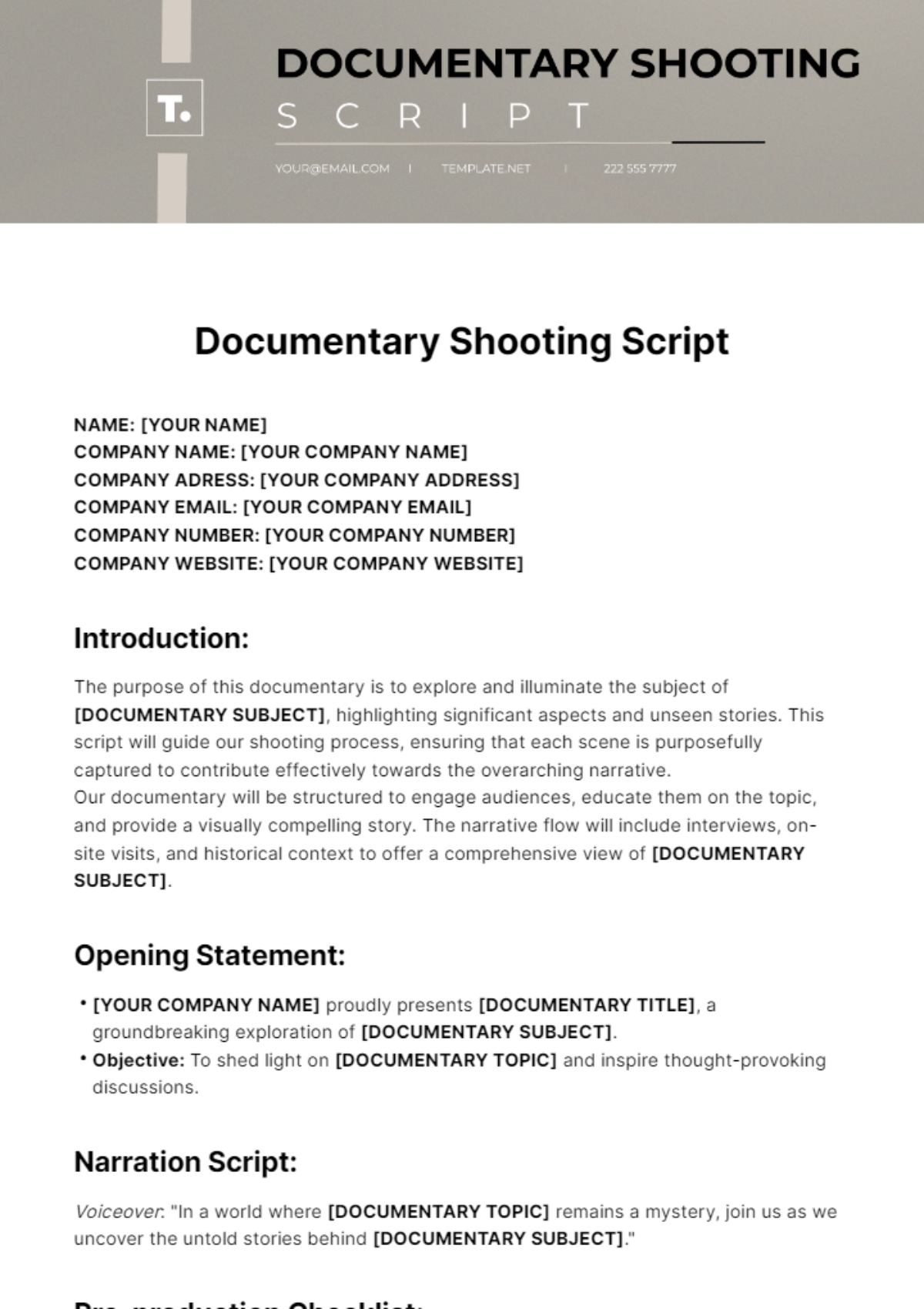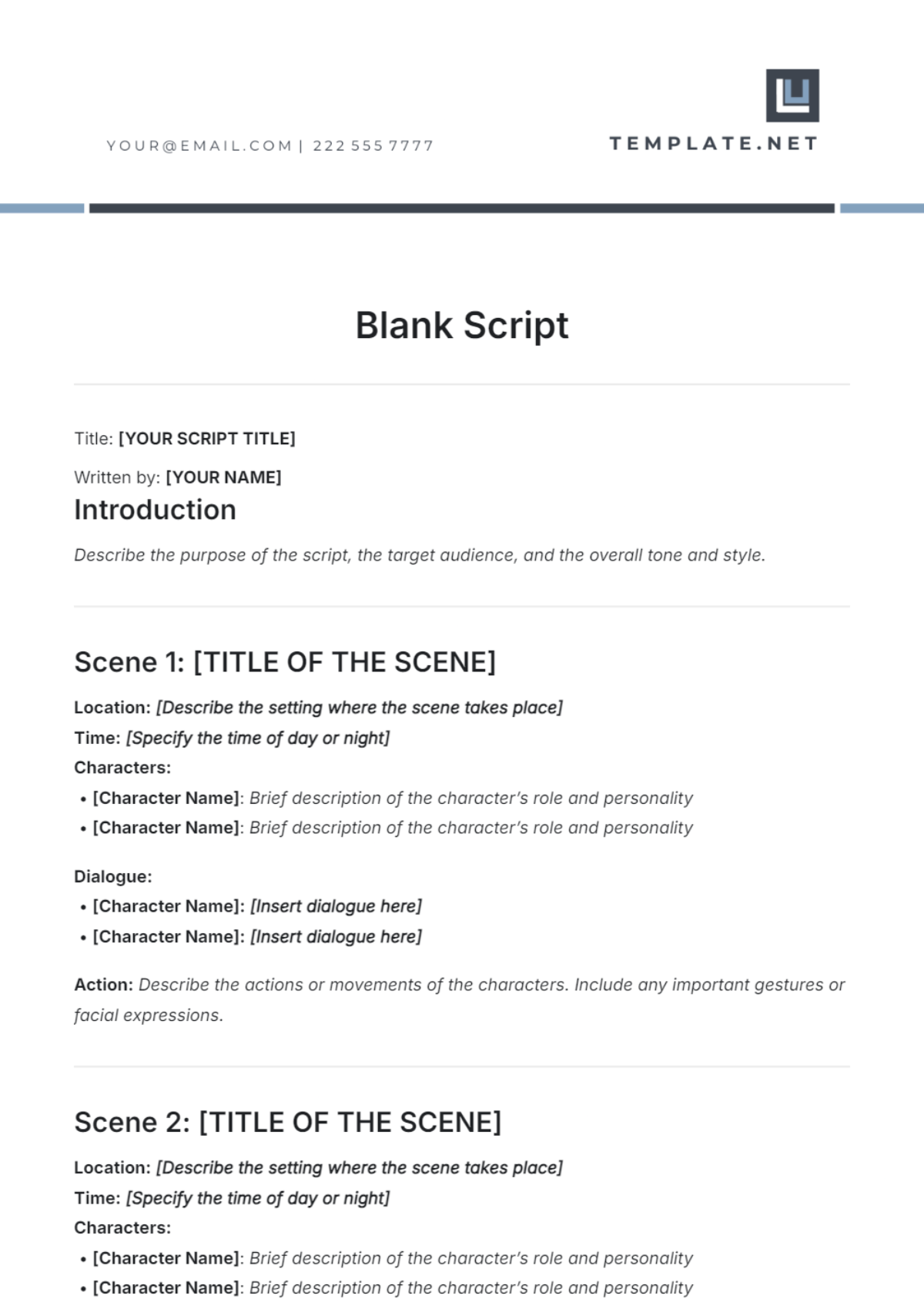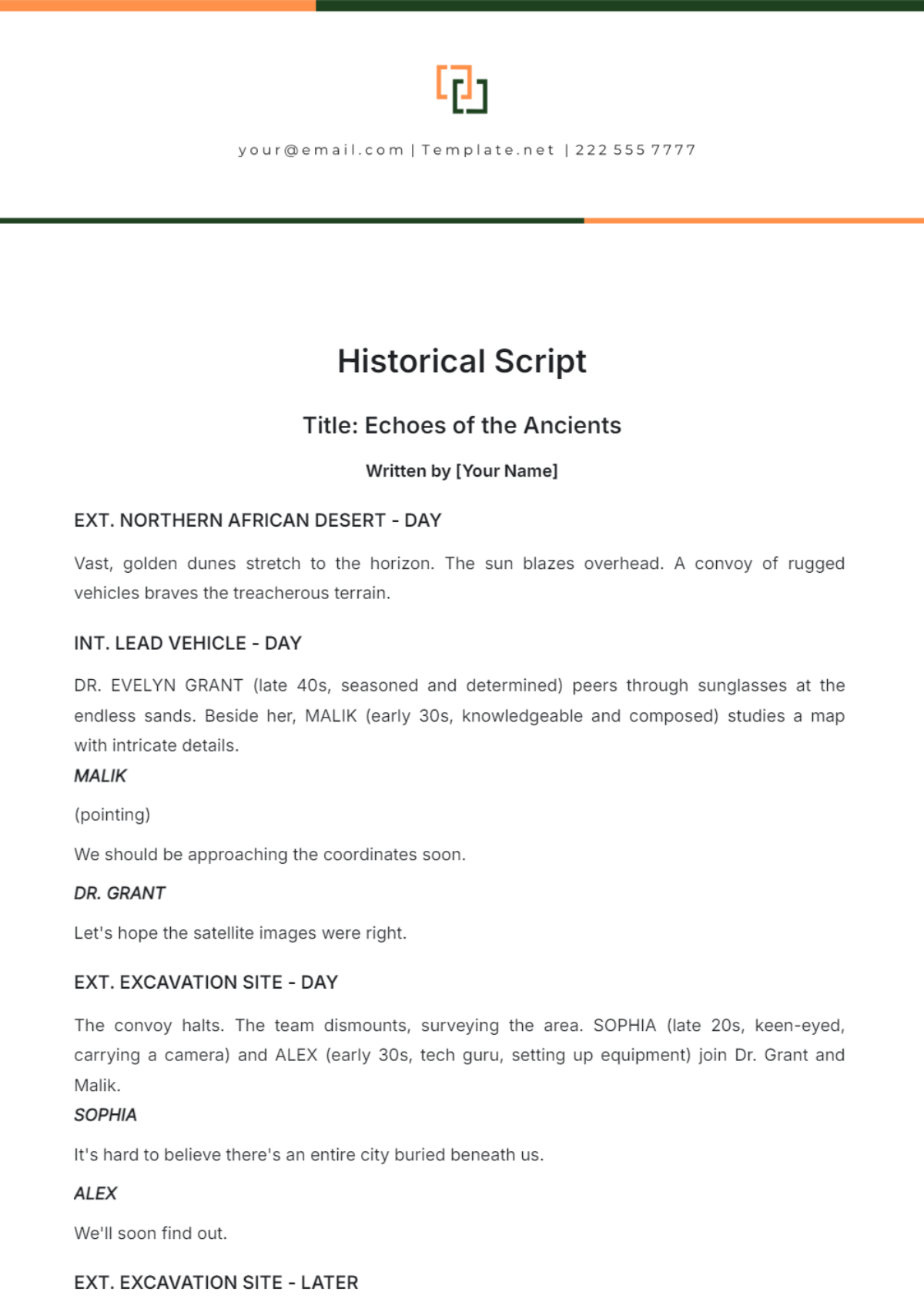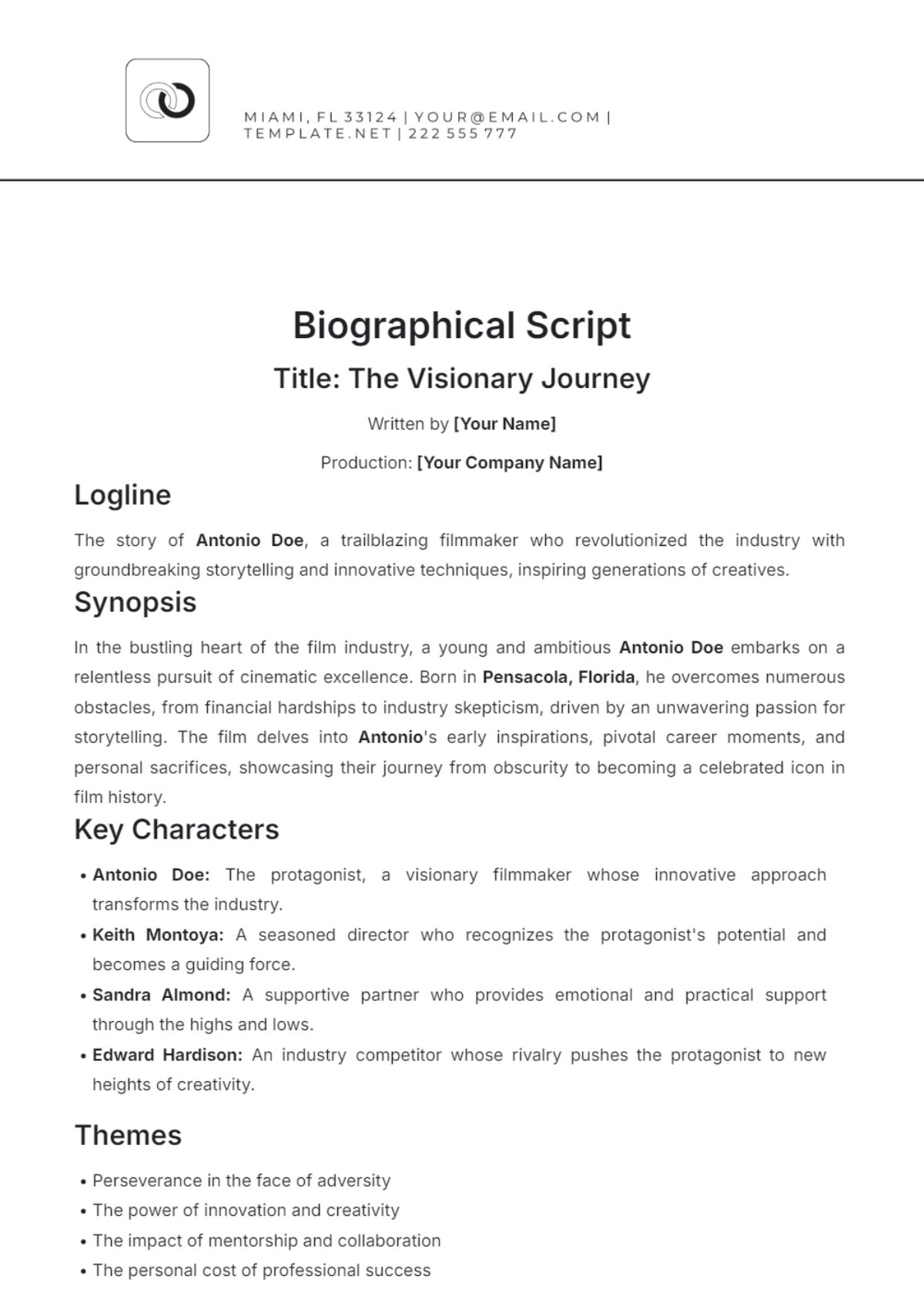PRESENTATION SCRIPT
Good [morning/afternoon/evening], everyone. My name is [Your Name], and today I am going to talk about [Your Presentation Topic]. I am delighted to have you here and I hope you will find this session both informative and engaging.
Introduction
To start, let's set the stage for our discussion today. [Provide a brief overview of the topic and why it is important]. By the end of this presentation, my aim is for you to have a better understanding of [mention main goal of the presentation].
Agenda
Our agenda for today will cover the following key points:
First, we will look at [Point 1]
Then, we will discuss [Point 2]
Next, we will explore [Point 3]
Finally, we will conclude with [Point 4], followed by a Q&A session.
[Point 1]
Let's begin with [Point 1]. [Describe and explain Point 1 in detail. Include relevant data or examples to support your points].
[Point 2]
Moving on to [Point 2]. [Discuss the details and significance of Point 2 and how it ties into the overall topic].
[Point 3]
Next in line is [Point 3]. [Elaborate on Point 3, providing insights, statistics, and examples as necessary].
[Point 4]
Finally, let's talk about [Point 4]. [Conclude the key points of your presentation and discuss the implications or future directions].
Conclusion
In conclusion, we have covered [briefly summarize the main points]. I hope this presentation has provided you with valuable insights into [Your Presentation Topic].
Questions & Answers
Now, I'd like to open the floor for questions. Please feel free to ask any questions you may have, and I will do my best to provide clear and helpful answers.
Thank you all for your time and attention. If you have further questions or would like additional information, please do not hesitate to reach out to me at [Your Contact Information]. Have a great day!

















